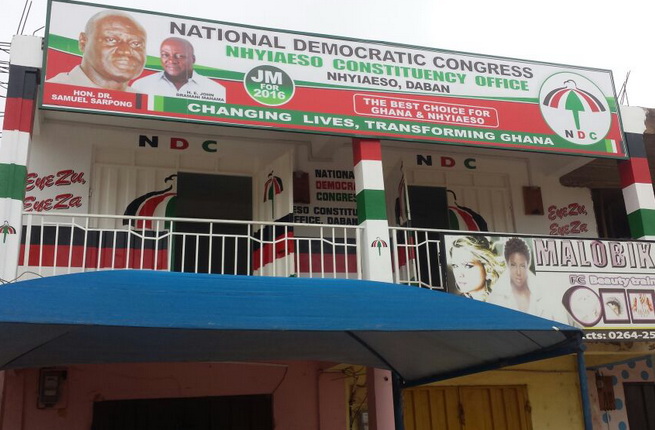
Samuel Sarpong opens office complex for Nhyiaeso NDC
The National Democratic Congress (NDC) parliamentary aspirant for Nhyiaeso in the Ashanti region, Mr Samuel Sarpong has acquired a modern office complex for the constituency as part of his strategy to win the seat for the party.
Located at the Nhyiaeso roundabout and Atinga Junction, directly opposite the Asafo Adjei hospital, the office has computers, sitting area, portions for party officers and permanent staff.
In an interview with the Daily Graphic during a clean-up exercise at Apraman, directly behind the new office, both within the constituency, Mr Sarpong said a well-established and equipped office plays a major role in the mobilization of people for the Agenda One Million votes.
Mr Sarpong who did not mention the cost of the office said, his entry into the race had led to enthusiasm in the activities of the party, especially some members of the opposition New Patriotic Party (NPP), and that there was the need for a rallying point where people could go and have information and also assist the party in whatever form.
He explained that since his entry into the race, he had received a lot of people from various political parties offering their support because they believed in what he did as the former Chief Executive of the Kumasi Metropolitan Assembly (KMA) and the Ashanti Regional Minister and his current portfolio as the Chief Executive of State Housing.
He said most of these people who were not party members have the conviction that just as he did as KMA boss and Regional Minister, he would bring development, progress and unity to the constituency when given the mandate.
Clean-Up
Addressing the people of Apraman, who had come out in large numbers to participate in the clean-up exercise, he said the exercise was established to ensure that once every month communities come together to clean their surroundings.
He explained that the cleaning of their surroundings was a health preventive measure to ensure that diseases such as cholera, malaria among others which fester as a result of dirty environments were prevented.
This, he said, would save the members of the community from getting sick, wasting working hours to visit hospitals and also saving the state scant resources to purchase drugs, among other challenges.
